Cash game poker is considered by many to be one of the purest forms of the game, as it enforces deep stack play and allows you to play every hand in isolation, unlike tournament poker.
Many new players start learning the game through tournaments and only encounter cash games later in their careers, often without realizing the massive strategic differences.
If you have been struggling to win in cash games or are completely new to the format and looking to learn how to play it, you have come to the right place.
We have prepared ten tips that will help you transform your cash game strategy and achieve better results as you play either online or live games.
- Cash Game Strategy Tip #1 – Think About Hand Ranges
- Cash Game Strategy Tip #2 – Always 3-Bet Your Monsters
- Cash Game Strategy Tip #3 – Be Mindful of Stack Sizes
- Cash Game Strategy Tip #4 – Use Position to Your Advantage
- Cash Game Strategy Tip #5 – Isolate Limpers a Lot
- Cash Game Strategy Tip #6 – Defend Your Big Blind Often
- Cash Game Strategy Tip #7 – Know When to Control the Pot Size
- Cash Game Strategy Tip #8 – Be Careful in Multi-way Pots
- Cash Game Strategy Tip #9 – Consider Future Streets
- Cash Game Strategy Tip #10 – Always Keep Studying
Cash Game Strategy Tip #1 – Think About Hand Ranges
When you first learned how to play poker, it is possible that someone told you it is essential to “put your opponent on a hand” before you make your play. The truth is that, in most cases, it is nearly impossible to put players on specific hands, which is why the term “hand range” was invented in the first place.
A poker range signifies a group of poker hands that a player is likely to have based on their position, action, and overall player image.
For example, a tight player raising from UTG will typically have a strong range, made up mostly of hands like A-A, K-K, Q-Q, A-K, A-Q, and perhaps some other pocket pairs and suited Broadway hands.
On the other hand, a maniac raising first-in from the button could have a very wide range, including as many as 80% of all hands in poker.
So, the next time you are playing a hand, think about your opponent’s hand in terms of ranges and try to shrink their range with every action they take.
Every check, bet, call, and raise your opponent makes will inform you as to the strength of their hand. Combine that with their general tendencies and other factors like the cards you are holding, and you will be able to get any poker range down to just a few hands by the river.

Whether you are playing live or online poker,
read your opponents and try and assess their hang range.
(Photo courtesy of Katerina Lukina)
Cash Game Strategy Tip #2 – Always 3-Bet Your Monsters
A mistake many players make in cash games is that they will try to get tricky and trap too much with their strongest hands, which is almost always not optimal.
Unless one of the players to your left has been 3-betting every single hand, you should always 3-bet a hand like A-A, K-K, or A-Ks against any raise, regardless of the position.
Not only do you want to build up a big pot with these hands whenever possible, but you also want to be able to 3-bet bluff, and if you don’t balance that out with your strong hands, your 3-betting range will become too weak.
Of course, the amount of bluffs you add to your 3-betting range should significantly depend on the table and general tendencies of the players you are up against.
If no one is folding to 3-bets in the game, you should not have too many 3-bet bluffs in your range. If they seem to be folding way too much, then expand your 3-bet bluffs even further.
However, regardless of how many bluffs you may have in your 3-betting range, you should always remember to put in that re-raise when you have a monster.
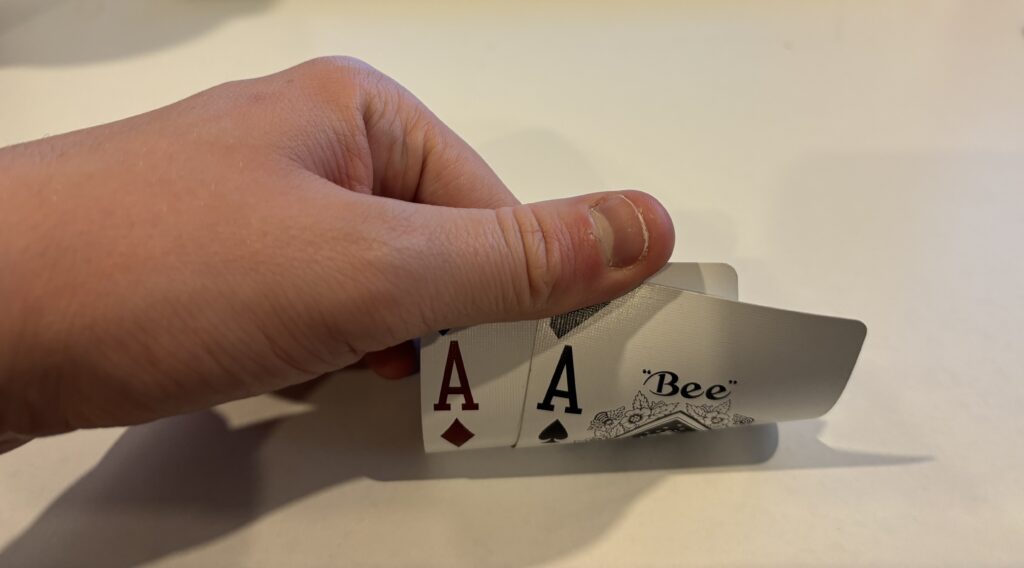
In cash games, it is almost always best to 3-bet with your best hands.
Cash Game Strategy Tip #3 – Be Mindful of Stack Sizes
While online poker makes tracking everyone’s stack quite easy, knowing how many chips everyone has in a live cash game can require a bit more focus.
That said, you should always be aware of your opponent’s stack sizes and adjust your cash game strategy accordingly.
If you don’t pay attention, you may find yourself making silly plays like preparing a river bluff against an opponent who is already almost all-in or 3-bet bluffing a short stack that is clearly committed to their hand.
Knowing what the effective stack is from the moment you put the first chips into the pot is essential, as is knowing the size of the pot and both your own and your opponent’s stack-to-pot ratio.
Cash Game Strategy Tip #4 – Use Position to Your Advantage
The position is essential in all forms of poker, and any good cash game strategy relies on position in a big way to ensure you are maximizing your edge over other players.
By playing as much as possible in position, you will over-realize your equity while also forcing your opponents to forfeit some of theirs.
If you have seen top players 3-betting a lot on the button and cutoff, it is because they are doing their best to play as many heads-up pots in position as possible.
On the other hand, unfavorable positions like UTG and SB should be avoided as much as possible. Only play your premium hands from these seats, and don’t allow yourself to get dragged into pots you have no business being in.
When you do make a big hand out of position, it won’t be easy to realize your equity or win the maximum, so your best course of action is to keep tight in these spots and wait for better situations.
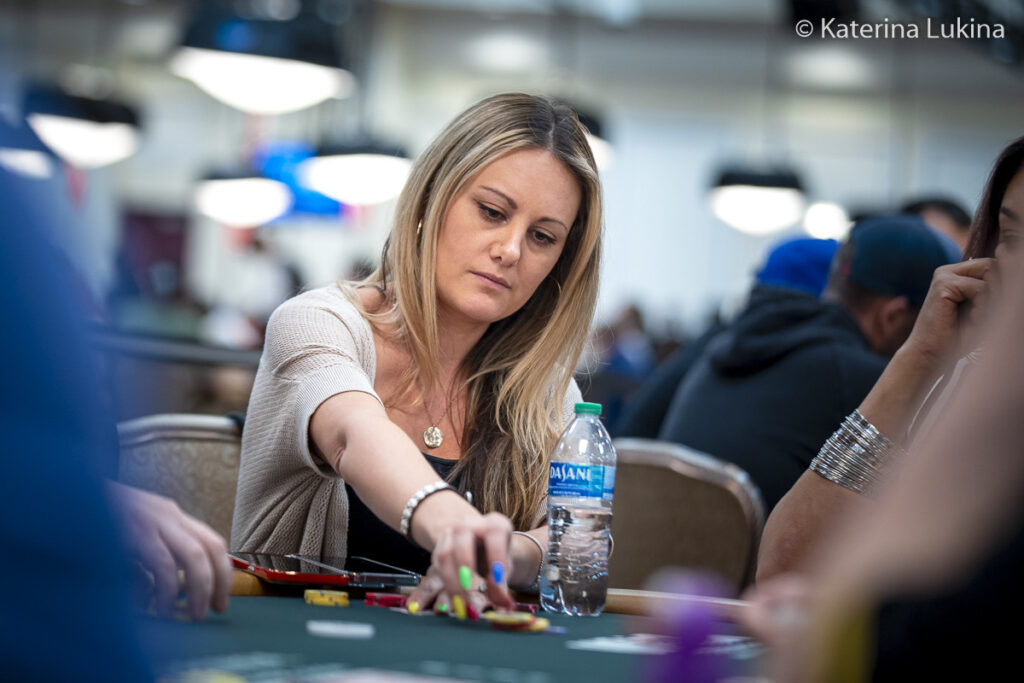
Look for opportunities to play in-position and avoid tough out-of-position spots.
(Photo courtesy of Katerina Lukina)
Cash Game Strategy Tip #5 – Isolate Limpers a Lot
Typically speaking, good poker players don’t limp into pots in deep stack cash games, so when you see someone limping a lot, you should immediately consider them one of your primary targets.
Whenever you have players limping into pots, you will want to isolate them often with a wide range of hands, making sure that you have a position when you do so.
Weak players often limp in with hands like 9-8s or even as weak as 7-6 off-suit or small pocket pairs and play these hands very straightforwardly.
For instance, a player may limp in with 7-6, call your 4x raise before the flop, and then easily fold when the flop doesn’t hit their hand.
You will often even see players fold such hands when they make a middle pair or call one bet and fold to your turn bet without much consideration.
Players like this are your best targets in cash games, and isolating them is one of the best ways to print money regularly, one small pot at a time.
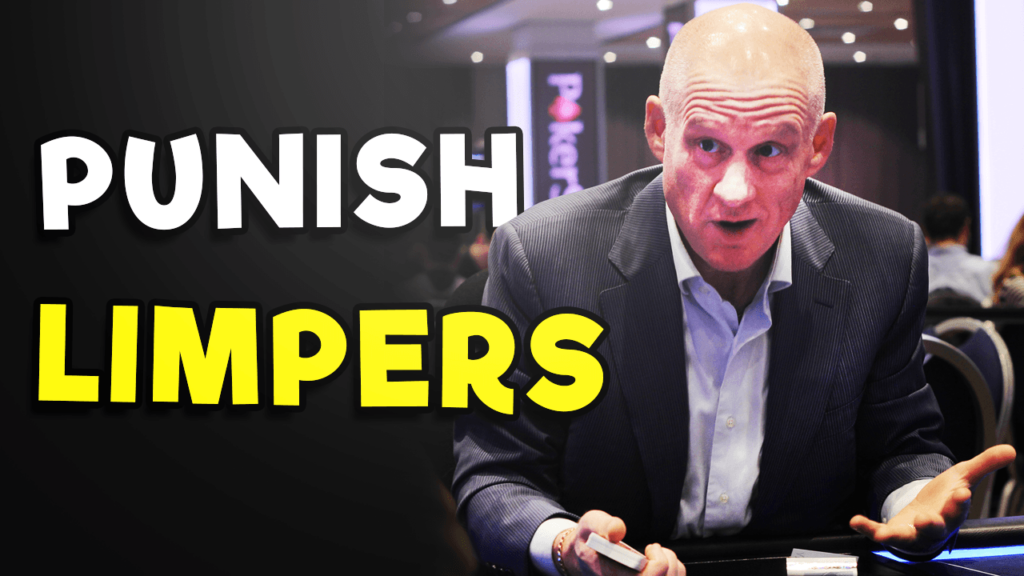
Learn how to optimally punish limpers with the help of acclaimed poker author Lee Jones!
Cash Game Strategy Tip #6 – Defend Your Big Blind Often
The big blind is an interesting position. On the one hand, it puts you at a positional disadvantage against most other seats, but on the other, it allows you to see flops at a reduced price.
When playing from the big blind, you will often face a small raise from one of the other players, giving you pretty good odds to call.
However, if you are transitioning over from tournament poker, also keep in mind that your price is not quite as good for two reasons.
For one, there is no ante in cash games in most cases, which means the pot is smaller to begin with. Secondly, most players tend to raise a bit bigger in cash games, which means you need to call more than you would in a tournament.
Still, you will often be offered a pretty decent price in the big blind, which means defending with quite a few suited and some well-connected off-suit hands will be a good idea.
Cash Game Strategy Tip #7 – Know When to Control the Pot Size
Pot control is another essential skill and part of a good poker strategy, as it allows you to navigate pots with medium-strength hands.
For example, let us imagine you hold 9♠-8♠ on a flop of K♣8♥7♦ in a single raised pot where you opened the cutoff and the big blind called.
You could c-bet in this spot, but checking this board quite often with your second pair also makes sense, as there are many other hands in your range that you could c-bet for value.
For example, you could have A-K, K-Q, K-Js, Q-Q, J-J, 10-10, 8-8, 7-7, and 8-7s in this spot, all of which are significantly stronger than your 9-8s.
On the other hand, you will have hands like 10-9s, J-10s, 6-5s, or A♣-Q♣ that you can c-bet as a bluff on this board, giving you plenty of bluffing opportunities.
So, your 9-8s in this scenario is a great hand to check back after your opponent checks the flop and hope to catch some bluffs on turn and river in position in a reasonably small pot.
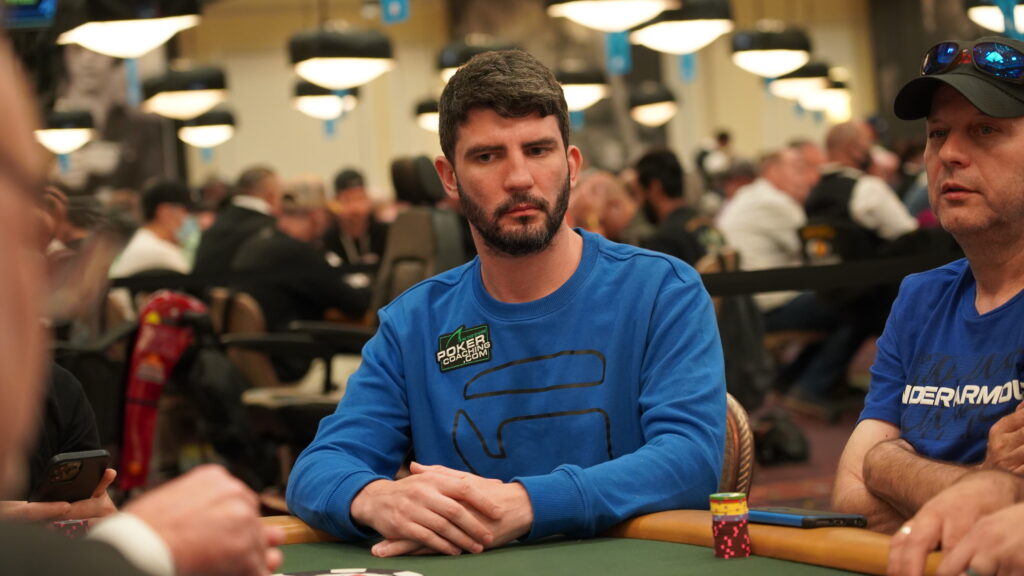
Although it may be hard, work to monitor the size of the pot when playing live poker.
Cash Game Strategy Tip #8 – Be Careful in Multi-way Pots
If there is one thing that is more frequent in cash games than in MTTs, especially live ones, it would be multi-way pots.
While tournament players typically tend to play somewhat tight, cash games can get quite hectic. In lower-stakes games, it is not uncommon to see four, five, or more players go to a flop.
When playing a multi-way pot, you should be a lot more careful than you would need to be in a heads-up situation, as there is so much more chance that someone has your hand beat.
For that reason, it is generally recommended to check a lot in multi-way pots, even when you do hit a reasonably strong hand on the flop.
Your overpairs and top pairs lose so much of their value in multi-way pots that you will often want to check the flop and let a card peel off before you act on your hand.
Of course, you will still want to start betting at some point, but be very careful of check-raises and be more willing to trust people in 4-way pots than you would be in heads up.
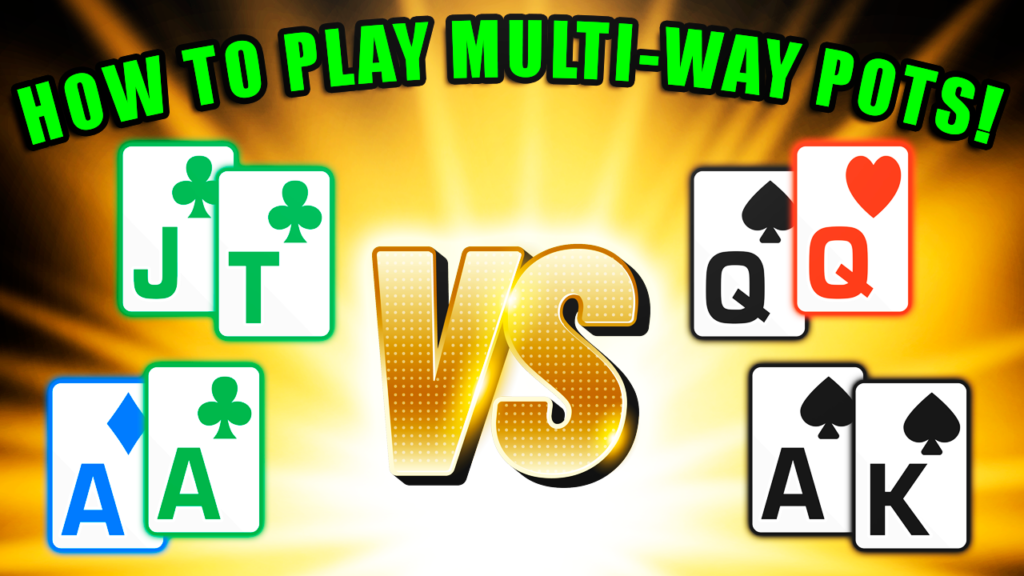
Learn how to play multi-way pots like the pros with the help of Louis-Philipe Mondoux.
Cash Game Strategy Tip #9 – Consider Future Streets
As we all know, Texas Holdem is played before the flop, on the flop, turn, and river, and the price of poker usually goes up with every passing street.
For that reason, it is essential to think about future betting streets early and avoid situations that will not be favorable for you.
When considering whether to fold, bet, call, or raise on the flop, consider what that will mean in the future.
If you are calling the flop with a bluff catcher, are you going to be willing to keep calling on the turn and river? If not, perhaps now is a good time to fold.
Likewise, when you have a very strong hand and decide to check for “deception,” are you actually considering how you are going to get all the chips into the pot?
Each play you make impacts future betting streets in a significant way, which is why you should think through every play and make sure you know what your plan is for the rest of the hand.

Consider what may happen on turns and rivers when playing the flop.
Cash Game Strategy Tip #10 – Always Keep Studying
At one point, you will become good enough to beat the cash games you are playing in. Unfortunately, this is the point at which many players stop studying.
By not studying poker away from the table, you allow other players to catch up with you, and you also risk getting worse at the game over time.
Your way of thinking about poker tends to deteriorate if you don’t regularly go over your hands and examine your play in an open and honest way.
What’s even more, poker is a constantly evolving game, and if you stay stuck in time, the game may simply change in ways that you never expected without you even noticing. Make sure that you do at least one or two solid study sessions every week with poker solvers, or check out our videos, and you will see your results improve over time and your mental game stay as sharp as ever.



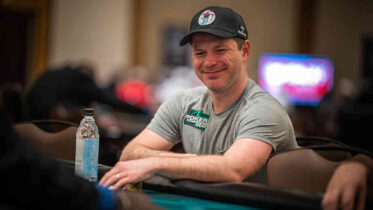


Jonathan Little seems to have a skilled and astute poker face…
This is a very nice blog that I will definitely come back to more times this year! Thanks for the informative post.
This is actually the kind of information I have been trying to find. Thank you for writing this information.
This is a great article. Thank you for putting complex ideas into simple words. Your writing style is interesting and the website is very readable. I admire creators like you who prioritize value and clarity.
The progression of ideas in this article is excellent. Each section connects well with the next, making it easy to stay engaged and retain the information